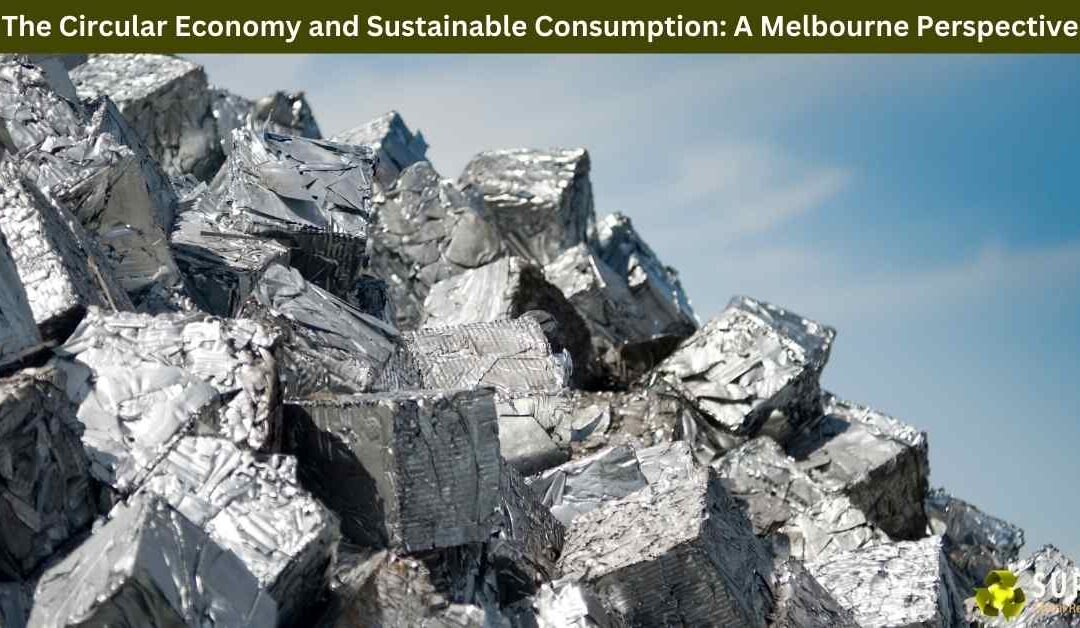Melbourne, a vibrant city known for its culture and innovation, is embracing the principles of the circular economy as a path toward sustainable consumption. This approach focuses on reducing waste, maximizing resource efficiency, and fostering a culture of reuse and recycling. Let’s delve into how Melbourne is contributing to the global circular economy movement and inspiring sustainable lifestyles.
Understanding the Circular Economy
The circular economy is an economic model that prioritizes sustainability over the traditional linear approach of “take, make, dispose.” By designing products and processes to minimize waste, this model keeps resources in use for as long as possible, creating a closed-loop system. Key principles of the circular economy include:
- Reduce: Minimizing resource use and waste generation.
- Reuse: Extending the life of products through repair and refurbishment.
- Recycle: Converting waste into new materials and products.
In Melbourne, these principles are becoming integral to both policy-making and everyday life.
Melbourne’s Initiatives in the Circular Economy
Melbourne has emerged as a leader in adopting circular economy practices, with initiatives spanning various sectors:
- Waste Management and Recycling: Melbourne’s local councils have implemented advanced recycling programs, including organic waste composting and e-waste recycling. The city’s efforts to reduce landfill reliance are paving the way for more sustainable waste management systems.
- Business Innovation: Startups and businesses in Melbourne are adopting circular practices. Companies like Upparel are turning textile waste into reusable materials, while others, such as KeepCup, are promoting reusable products to reduce single-use plastic.
- Sustainable Construction: The construction industry is embracing sustainable practices by repurposing demolition waste and using recycled materials in new projects. Melbourne’s Green Star-rated buildings are a testament to the city’s commitment to eco-friendly development.
- Community Engagement: Programs like Repair Café Melbourne encourage residents to repair broken items instead of discarding them, fostering a culture of reuse and resourcefulness.
Promoting Sustainable Consumption
Sustainable consumption is at the heart of Melbourne’s circular economy efforts. Residents and businesses alike are making conscious choices to reduce their environmental footprint:
- Eco-Friendly Products: Melbourne’s markets and stores increasingly offer sustainable alternatives, from biodegradable packaging to ethically sourced goods.
- Sharing Economy: Platforms like ShareWaste and tool libraries enable resource sharing, reducing the need for individual ownership and promoting communal consumption.
- Education and Awareness: Local campaigns and workshops educate communities about sustainable practices, empowering individuals to make informed decisions.
Challenges and Opportunities
Despite its progress, Melbourne faces challenges in fully implementing the circular economy. Limited infrastructure for large-scale recycling and the high costs of transitioning to sustainable systems are notable obstacles. However, these challenges present opportunities for innovation and collaboration:
- Public-Private Partnerships: Collaborative efforts between governments and businesses can drive investment in sustainable infrastructure.
- Technological Innovation: Advancements in recycling technology and material science can address inefficiencies in waste processing.
- Policy Support: Stronger regulations and incentives can accelerate the adoption of circular practices across industries.
A Vision for the Future
Melbourne’s commitment to the circular economy reflects its vision for a sustainable future. By prioritizing sustainable consumption and fostering innovation, the city is setting an example for other urban centers worldwide. As businesses, communities, and policymakers work together, Melbourne is not only reducing its environmental impact but also creating economic opportunities and enhancing quality of life.
Conclusion
The transition to a circular economy is essential for addressing the challenges of waste and resource depletion. Melbourne’s proactive approach demonstrates how cities can lead the way in sustainable consumption. Through innovative initiatives, community engagement, and a shared commitment to sustainability, Melbourne is shaping a resilient and eco-conscious future for generations to come.
If you are in Mitcham, Victoria 3132, and looking for a metal recycling service, this is the best way to visit us.
345 Frankston – Dandenong Road, Dandenong South VIC 3175
(03) 9706 4909


Recent Comments